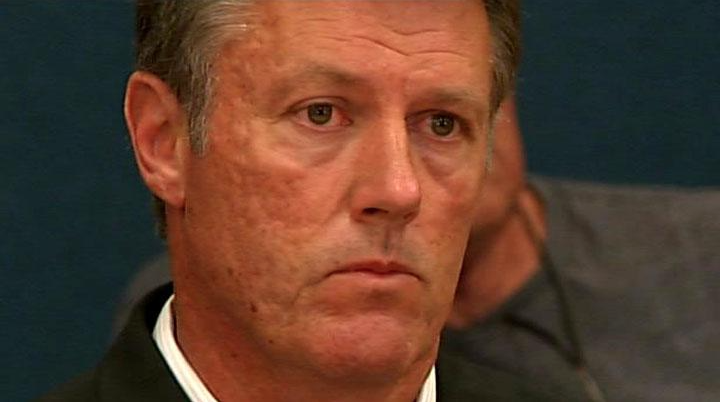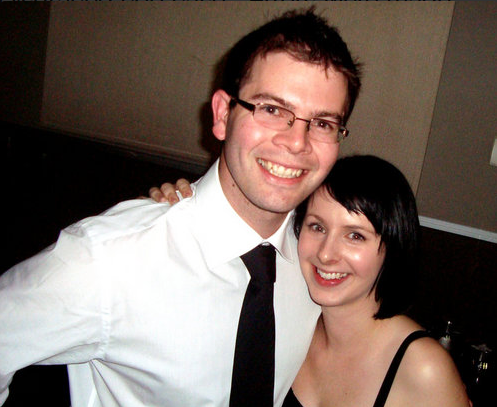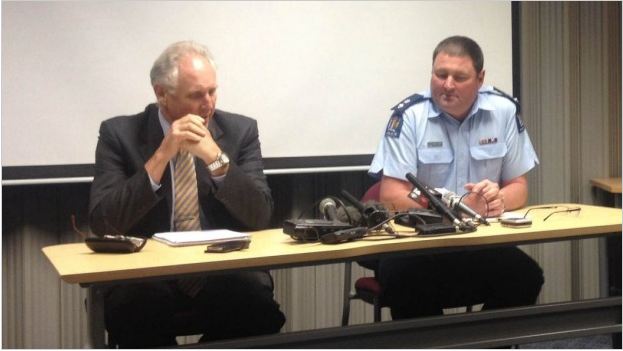
Bent cop Detective Sergeant Blowers, as head of a serious crime unit just how many innocent people did he manage to fuck over before being identified as an arsehole
Since 1988 the only thing standing between the New Zealand Police and the Kiwi public has been the country’s Independent Police Conduct Commission (IPCA) formally the Police Complaints Authority (PCA). When the idea for an investigating body was first mooted almost three decades ago it seemed to hold some promise that the bad old days of New Zealand policing would disappear once police where held to account by an “Independent” investigating body. Sadly this promise by successive Kiwi governments has never materialised.
The man responsible for heading up the IPC when first commissioned was retired High Court Justice Peter Quillam. Since then there have been a succession of retired judges who have held the position and yet there has been little change in police attitudes or behaviour. The IPCA was and still is a toothless rabbit. Over the years its been infiltrated by corrupt cops and a handful of bent lawyers that habitually sleep with them…literally.
The fact is that New Zealanders have absolutely no protection from the wrong-doing of the country’s police force. There is no genuine arbiter or investigating body that Kiwi’s can turn to knowing that they will be treated fairly, honestly, with integrity and dignity and above all else transparency. Even New Zealander’s working within the police force are not exempt from what has long since been a culture of systemic abuse and cover-up.
Over the past few months the New Zealand public has been given the opportunity to watch as a glowing example of this problem has played out in one of the countries courtrooms, only for the cycle of media spin and damage control to eventually kick into “full steam” with yesterday’s long-awaited sentencing.
Detective Sergeant Michael Blowers surfaced as a corrupt cop as far back as 2002 but police did absolutely nothing to expose and prosecute him, instead they set out on one of there now very familiar coverup operations, antics that have become so frequent that they have even become easily recognised as such by the average man or woman in the street.
Even the press coverage following these events can readily be seen for what it is, a complete and utter sham designed to hold back the growing tide of public disgust.
Again the case of Detective Blowers presents a text-book case just begging to be used to demonstrate the hallmarks that one should look for as confirmation of the belief that something stinks.
The New Zealand Herald, as is usually the case, was the first mainstream media cab of the rank with yet another of their to be expected cynical attempts to con the public, an exercise in public relations futility. Another good example of this behaviour was todays very “timely” police press release, whipped up to look like a genuine news story by the Herald’s Patrice Dougan:
“The latest citizen satisfaction survey shows 78 per cent of people have complete trust and confidence in the men and women in blue, down from 79 per cent last financial year.”
Source:http://www.nzherald.co.nz/nz/news/article.cfm?c_id=1&objectid=11368888
Sure the newsprint will linger, collecting dust and yellowing in libraries all around New Zealand for decades, but they will in fact, now more than ever before, achieve little of what was intended, to reassure the ever shrinking gullible public that the police are there to serve them. What is being printed by the mainstream media is not a true reflection of reality.

(Left) The New Zealand Herald’s Jared Savage. One of the NZH team that works hard making New Zealand police press releases look like genuine news copy.
Amongst the plethora of nauseating crap that was produced by both Fairfax and APNZ’s hack Kiwi journo’s yesterday was a piece by the Heralds Jared Savage. It stood out for one reason, Savage actually touched on a little of the uglier history of the case, information that almost every other Journo had neglected to mention. We are not saying however that Savage was honest with that material. What we are saying is that Savage, somewhat unusually, decided to revisit aspects of the case that would normally have been conveniently forgotten in the hope that the publics memory had again failed. Of course in the not to distant past the public would perhaps not have been able put one and one together.
Savage’s piece is telling in yet another way, it is an underhanded acknowledgement that some amongst New Zealand’s public are following these cases in greater detail, perhaps more importantly it is also an acknowledgement that the bloggers covering police issues will most certainly be reminding the public that there is more to these prosecutions than the mainstream media has maneged to expose in the past. For this reason one should actually treat Savage as a suspect in another crime, the medias long-time complicity in police cover-up. In fact we suspect he’s at it again, although this time the subtlety is obvious
Savage has been less than straight up with his readers. Sure Savage touches briefly on the fact that Blowers subordinate Andrew Glendinning had attempted to blow the whistle on Blowers last year and that Glendinning had been investigated instead but that’s where he stops, just one paragraph. No further information is made available for his readers. In fact the article fails to link (url) to the so called “Herald Inquiry”, which is in itself strange because they do it all the time with any other type of story. Whats even more interesting is the fact that if one “Googles” Andrew Glendinning’s name, adding all the usual search terms the Herald Investigation from September last year simply does not rank. Then when you go to the trouble of searching the Heralds site again the Herald’s Investigation is not listed at all, just a few minor stories covering arrests made by Glendinning in 2013.
Of course this is not unusual, the New Zealand police have a very special relationship with the New Zealand Herald, oh and Google New Zealand. Police also have a very special relationship with both Facebook and YouTube in New Zealand. It seems that the New Zealand police in particular have all three American giants hidden somewhere up their arse, the corporates all willing and able to remove anything the New Zealand police determine is unsavoury especially if it hi-lights the stench of their own corruption; it’s a relationship envied by police departments in other jurisdictions but it’s also a behaviour that would see the customers leaving in droves if it occurred anywhere other than New Zealand, so all three keep their complicity on the low-down
Whats also telling from both Savage’s article, Venning’s Judgement and the length of the sentence Blowers received is that the strings behind the attempt at damage control, particularly in this case, are being pulled from a very great height, with the New Zealand police hierarchy, judiciary and government undoubtedly all involved from their hiding place behind a curtain somewhere in Wellington.
The speed with which Savage’s article hit the headlines was astonishing, undoubtedly because it was likely written at the instigation of a police media relations specialist prior to the sentence actually being delivered;
Disgraced cop case: ‘Errors were made’ – police
Police top brass have admitted mistakes were made when the detective who blew the whistle on his drug-dealing boss was investigated, before focus turned to his colleague.
Michael David Blowers was yesterday jailed for four years and nine months after pleading guilty to methamphetamine offences while in charge of the organised crime unit in Northland.
The 51-year-old took 34 grams of the Class-A drug from the exhibit locker at the Whangarei police station and replaced it with salt to disguise the theft.
Justice Geoffrey Venning highlighted the “high level of hypocrisy” of the crimes and said Blowers’ actions endangered “the trust that members of the community properly have in our police force”.
He said Blowers had suffered the “public humiliation of a significant personal fall from grace” but his late admission of guilt stopped some details embarrassing to police being aired in open court.
A Herald inquiry revealed in September last year that the detective who blew the whistle on Blowers, who was his supervisor, was himself investigated before his concerns were taken seriously.
Andrew Glendinning became suspicious of Blowers’ behaviour and tailed him on visits to the home of a woman before handing a dossier – which included covert photographs – to senior management in Northland.
But the actions of Mr Glendinning, not Blowers, were investigated first.
He was removed from the organised crime squad and placed under strict supervision while being subjected to an internal code-of-conduct inquiry.
This centred on his use of the National Intelligence Application computer system, which is meant to be used only on official police business.
After several weeks, he was cleared of any breaches and attention switched to Blowers, who became the subject of an internal inquiry which was later escalated to a criminal investigation.
Mr Glendinning was listed as a trial witness and did not return phone calls.
Yesterday, Superintendent Russell Le Prou, the Northland district commander, said he was unable to discuss details of employment matters involving staff but acknowledged mistakes were made.
“Yes, there were some errors … We could have done things better at the outset. We’ve learned some lessons along the way. At the end of the day, we got the right result. We’ve got rid of a bad apple.”
Police lawyers are considering whether an internal report on what happened can be released to the Herald under the Official Information Act.
“We genuinely want to work out the balance between the public interest with our obligations in regards to employment matters and privacy and release what we can.”
Mr Le Prou also offered reassurance to any Northland police officer with concerns about a colleague.
“If there is a matter like this which gets reported to me, or my leadership team, we will investigate it appropriately.”
The downfall of Blowers, a 21-year police veteran, started because of his affair with an informant, according to Justice Venning.
Blowers had legitimately cultivated her as a source but Justice Venning said the relationship became “inappropriate and intimate”.
As far back as 2002, police bosses had told him to cease all contact with the woman, whose identity is suppressed.
“You have lost the home you had built up with your wife and you have suffered the very public humiliation of a significant … fall from grace.”
Blowers had maintained his innocence since his arrest in 2013 but made a shock admission during his High Court trial in October when he pleaded guilty to supplying methamphetamine over a period of 12 months and a charge of stealing the drugs.
The drugs were taken from a seizure of 58g at a motel in October 2011 and testing by the Institute of Environmental Science and Research showed 81 per cent purity. But a second test showed 29 per cent purity, and table salt was present.
“It looked the same, it weighed the same, but it was not the same,” prosecutor Phil Hamlin told the court. “Someone had carefully made up the 58g to make it look like the original, but it was not.”
Blowers’ guilty plea came only after evidence showed he was the only person to have access to the drugs.
He was regularly supplying methamphetamine to his informant for her to sell, normally in 1g amounts, and tipped her off about police inquiries.
Justice Venning said he “constantly pressured her for cash”. The largest single sum she paid him was $7000.
Blowers told her who not to associate with in the criminal community so she could avoid being caught up in inquiries.
He claimed he stole the drugs to protect his family from perceived threats and out of fear of the criminal underworld, but Justice Venning dismissed that.
“If you and your family had been genuinely threatened by gangs there were steps the police could, and would, have taken to protect you.”
Source: http://www.nzherald.co.nz/nz/news/article.cfm?c_id=1&objectid=11368334
The fact is that the New Zealand police had tried to hide Blower’s offending. Whats more when the accusations were made public the police went into damage control and as always attempted to hang the whistle-blower, Constable Andrew Glendinning, out to dry. In the end however, when they couldn’t find the dirt they needed, they were forced, only because it had become public, to cover their tracks by prosecuting Blowers. The prosecution however was, as always in these cases, a half-arsed attempt.
Justice Venning’s sentence was also a half-arsed attempt. Four years, nine months imprisonment (out in two years with good behaviour) is an absolute joke. Only a matter of days earlier former West Auckland police officer Peter Pakau had been sentenced to eight years and four months in jail for accepting a cash bribe, corruption and supplying Class A drugs. Last year police prosecutor,Timothy John Russell Sarah, was sentenced to four years having also pleaded guilty to three charges of supplying methamphetamine, one of possessing the drug and a representative charge of dishonestly accessing the police computer.
Whilst Pakau was a sworn police officer, he held no rank. Sarah was not a sworn police officer, he was a civilian police employee. So when one compares the sentences that these two received with that which Blowers, a senior sworn police officer, holding the rank of Detective sergeant, having served twenty years as a cop and heading up the serious crime squad before being discovered the sentence clearly reaks of a deal having been done behind the scenes. So just what sort of dirt did Detective Blowers have on his high ranking police comrades? Dirt that gave him that sort of leverage?
Blowers according to police had held out to the last, senior police and prosecutors claiming that he only caved when police alleged that he was the only cop who had access to the room where the drugs were stored. Gee, that sort of irrefutable evidence would certainly guarantee a conviction!

Two sickening police con artists; Superintendent Russell Le Prou (right), Detective Inspector Stuart Allsopp-Smith. Obviously niether could look the journos present in the eye.
What a load of shit, that contention would easily have been challenged by competent defense. The fact, is even common-sense begs the question; if Blowers had been the only cop with access to that particular room why then did he feel the need to hide his offending by allegedly replacing the drugs he had taken with “table salt”?
“It looked the same, it weighed the same, but it was not the same,” ……. “Someone had carefully made up the 58g to make it look like the original, but it was not.”– Crown Prosecutor, Phillip Hamlin
That’s right, so that the other cops who had the same access to the room would not notice that the items were missing, short of having the substituted salt analysed.
This case stinks of cover-up as does the sentence Venning J dished out. Whats more the police’s extraordinarily rapid front footing in the media also smells;
“Yes, there were some errors … We could have done things better at the outset. We’ve learned some lessons along the way. At the end of the day, we got the right result. We’ve got rid of a bad apple.” – District Commander, Superintendent Russell Le Prou
At “the end of the day” the bastards got cought, red-handed in fact. Le Prou also seems to have left out some pretty large circumstance when making the above statement, so big it closely resembles the proverbial fucking elephant. Like the fact that police seriously fucked over a few good people before they got to the one bad cop (there are of course more), a cop that they had known was likely bent since 2002. Contrary to Le Prou’s statements in the mainstream media there were no “mistakes” made by police, there never are, even the years of now renowned injustices were intentional. absolutely everything that they did in this case, which was no doubt overseen by Le Prou, or a predecessor, was intentional. They undoubtedly saw Detective sergeant Blowers subordinate, constable Andrew Glendinning (who only started with police in 2007), as expendable and if they could have hung him out to dry they most certainly would have.
Then they would simply have dealt with Blowers by quietly pensioning him off, unbeknownst to the public, so that he could have, like so many other corrupt ex-cops, joined the ranks of New Zealand’s civil service – ex-cops the likes Keith Manch at Maritime New Zealand, Dean Winter at the Department of Justice, Pieter Roozendaal heading up investigations at the Independent Police Conduct Authority and of course lets not forget the one they eventually caught slipping in the back door at the Real Estate Agents Authority (REAA), ex police superintendent Jonathan Moss.
An indication of just how seriously the police hierarchy are taking the public exposure of the misfeasance dished out to Glendinning however is to be found in the comments made by La Prou himself”
Police lawyers are considering whether an internal report on what happened can be released to the Herald under the Official Information Act.
“We genuinely want to work out the balance between the public interest with our obligations in regards to employment matters and privacy and release what we can.”
Mr Le Prou also offered reassurance to any Northland police officer with concerns about a colleague.
“If there is a matter like this which gets reported to me, or my leadership team, we will investigate it appropriately.”
Source: http://www.nzherald.co.nz/nz/news/article.cfm?c_id=1&objectid=11368334
Of course the police lawyers that Le Prou is referring to form the very same legal brains that have overseen coverup after coverup and come up with some absolutely amazing Machiavellian reasons over the years for withholding information that would have seen literally hundreds of bent cops otherwise imprisoned.
LF in fact suspects that the “Police lawyer” who will be overseeing this little beauty will be none other than Christchurch based Ian McArthur, with over thirty years of experience in concealing police malfeasance and criminal behavior McArthur is certainly exceptionally well placed to ensure that the truth, at least as any reasonable person would be able to recognise it, never gets to see the light of day.
The ruddy-faced superintendent Le Prou is lying through is Whisky stained teeth. The New Zealand police have absolutely no intention of being straight up with their adoring public, why would they?They have never held an interest or felt particularly obliged in that area. The police’s only interest has always been one of self-service. On this occasion they will be acting to cover their own fat arses, save Glendinning is of a mind to file a civil tort, claiming police harassment and damages for the hell he, as an honest cop, and his family were put through by cunts the likes of Le Prou and his arse-licking side-kick Detective Inspector Stuart Allsopp-Smith.
There are of course two questions that will still be on the lips of all New Zealanders – What did eventually happened to Andrew Glendinning, did he hang around like a loyal dog after being kicked in the guts, or has he moved on from the surreal nightmare that is the New Zealand police, and the second; What has happened to Greg O’Connor?
If the consequences of the New Zealand police’s corrupt behaviour were not so tragic you would have very good reason to laugh extremely loudly.
Further reading:
http://www.stuff.co.nz/national/crime/63781253/Cops-betrayed-by-Michael-Blowers-crimes
http://www.nzherald.co.nz/nz/news/article.cfm?c_id=1&objectid=11368043


No Comments
http://www.stuff.co.nz/national/crime/63910095/Shamed-drug-cop-had-80k-ACC-job
Sargent Blowers skin on his face is a dead give away. As a teen he had terrible zits and acne. He would have been hassled at school as a “pizza face” so as payback he morfed into and A grade asshole whose retribution is on the very public he should be protecting. Great article
Regarding Blowers, there should have been an additional charge of perverting the course of justice. 2 males were caught at the Rose City Motel with $58,000 worth of methamphetamine, and the charges had to be dropped due to Blowers tampering with (stealing) the evidence.